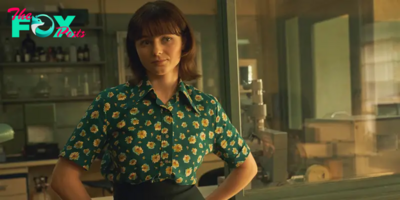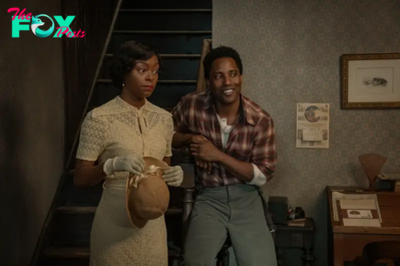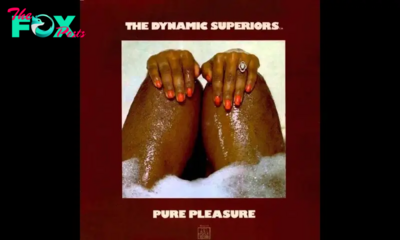Entertainment
On Devising within the Classroom
Elyzabeth Gregory Wilder: Welcome to Educating Theatre, a podcast concerning the apply and pedagogy of theatre schooling produced for HowlRound Theatre Commons, a free and open platform for theatremakers worldwide. I’m your host, playwright and theatre professor Elizabeth Gregory Wilder.
Welcome again to the Educating Theatre podcast. We’re actually excited at the moment to be speaking about devising. We’ve two thrilling company with us at the moment. We’ve Andy Paris, who’s an Emmy-nominated author who teaches devising at North Carolina Faculty of the Arts. He’s a founding member of the Tectonic Theatre Challenge and helped develop Second Work, a way for theatrical exploration and interdisciplinary collaboration. Utilizing the Second Work approach, he co-created the critically acclaimed play The Laramie Challenge.
And now we have Emily Harrison, an assistant professor of theatre at Hamilton Faculty. She’s the founder and producing creative director of the Boulder-based award-winning Sq. Product Theatre. Emily’s work focuses totally on the creation and growth of latest and revolutionary works with American theatre and an exploration of American mythology, violence, and catastrophe and efficiency. Emily holds an MFA in efficiency from Savannah Faculty of Artwork and Design, and a PhD in Theatre and Efficiency research from the College of Colorado Boulder. Thanks, guys, for being with us at the moment.
Andy. Paris: Thanks for having me.
Emily Harrison: Thanks for having us.
Elyzabeth: Earlier than we get began, let’s be sure everybody is aware of what we imply by devising. Andy, may you discuss a bit of bit about what devising is and the place it got here from?
Andy: Thanks, Elizabeth. I hoped that you’d ask Emily this query first.
Elyzabeth: Shock.
Andy: My dean form of makes enjoyable of me. He’s like, “Who requested you ‘What’s devising?’ at the moment on campus?” Mainly, I really feel like I’ve spent the final 5 years right here attempting to clarify what devising is, and it’s fascinating as a result of what I’ve discovered too is that coaching individuals in devising apply and devising a chunk of theatre really feel like two very completely different endeavors to me. And so after we’re speaking about schooling, I can discuss what devising means to college students first, after which in order for you, we are able to additionally discuss what it means to plot a piece.
However that’s kind of how I’ve been capable of attempt to parse it in my mind in order that I’m not attempting to do two issues directly that appear typically contradictory, as a result of devising a chunk of labor includes a product. And a part of what devising’s reward, I believe, to college students is the reward of concentrating on course of with out an instantaneous product in thoughts. And so in coaching devising apply—I’m not likely answering the query “what’s devising?” however I’m attempting—that in devising apply, a minimum of the way in which that I perceive it, we’re inspecting and the instruments of the theatre and the ability of the instruments of the theatre and the way the theatre operates and the way theatrical instruments can be utilized to create kind and the way that kind coupled with content material as kind and content material kind of relate to one another into moments of theatrical narrative.
So after we develop Second Work, the second we’re defining partially as a, a unit of theatrical time. In order that has a starting, a center, an finish, and a few form of dynamic change. And that dynamic change is a factor that makes it a chunk of narrative. So in devising apply, we’re not beginning with the story, we’re beginning with components and kind after which noticing what story components are popping out or what narrative components emerge from that.
Now, finally then, and this will get into the making a chunk factor, you need to go write the factor that you just discovered. So it’s not like a magic tablet the place it simply rises up from the ground and you’ve got a play. However what you’re hopefully endeavoring to do is to dig in and discover kind that you just as your private artistry relate to or excites you or resonates with you, after which carry that ahead with you to work extra deeply in that kind.
In my day once I was developing, I believe it was referred to as “experimental theatre,” and I went to the Experimental Theatre Wing at New York College, and it was very a lot within the vein of devising, simply individuals weren’t utilizing that phrase. And I believe what occurred was “experimental theatre” had started to undertake the form of… Effectively, a form of product of theatre. And so as a way to separate a… I believe individuals began to make use of devising to attempt to separate themselves from experimental theatre, which had this complete onus of what that was. And now I believe that we’re considerably gravitating towards the identical place that individuals consider devising or devised theatre as a sure form of theatre, whereas in devising, you may find yourself with one thing that appears very very similar to a play. It’s simply the way you arrived there’s a very completely different journey.
Emily: Yeah, I believe that’s nice. I might simply say that devising actually, the most straightforward definition I can consider is that it’s making an authentic piece of theatrical materials collectively as an ensemble, as a collaborative. And like Andy was saying, it might be one thing that finally ends up being very summary in nature and extra experimental. I believe “experimental” has change into a nasty phrase in theatre group. While you say making experimental theatre, most individuals are like, “Oh, God,” which is simply too unhealthy as a result of I don’t suppose they really know what it means. However I additionally suppose that some individuals have seen some actually unhealthy “experimental theatre.”
So I believe the only definition is that it’s making one thing new with a bunch of individuals, not essentially privileging verbal language the way in which that the majority Western theatre does. And it may be extra summary, and it might probably find yourself being a product that appears very very similar to a standard linear play.
A part of what devising’s reward, I believe, to college students is the reward of concentrating on course of with out an instantaneous product in thoughts.
Elyzabeth: Glorious. So now that now we have our definition, how do you guys introduce devising to college students? The place do you begin?
Emily: Oh, man. I imply, I begin small. I’m educating in a school, and I’m educating college students who’re very clever and really keen. They need to learn to do issues, and so they need to study completely different varieties of how in… However they’re nonetheless, the expertise of theatre could be very a lot conventional. So I begin small and I begin with having conversations with them about “what are the instruments that now we have at our disposal in theatre?” I ask them to think about items of theatre that they’ve seen and to consider a second that actually, actually stood out to them and a chunk of theatre that they’ve seen, and to speak about that and to interrupt it down.
And usually what you discover while you do that’s that they’re not speaking about plot. Quite a lot of instances they’re not even actually speaking about story. They’re speaking about how all the weather got here collectively to make them really feel one thing. And so we begin there. I don’t have a particular methodology. I take advantage of every kind of various methods in and completely different texts, and typically I present them some video clips, however I additionally don’t need them to get an thought of their head of that is what devised theatre seems like as a result of it actually could be such a broad vary of experiences.
So we simply begin on the very starting. What are you able to do with a light-weight? What are you able to do with a flashlight? What are you able to do with this jacket? What are you able to do, a doorbell? Simply completely different instruments that now we have at our disposal that we are able to use to do one thing theatrical that’s not essentially concerning the phrases.
Elyzabeth: It’s a really natural course of and also you kind of comply with their lead?
Emily: Will depend on who’s within the room. Once I’m educating a devising class, the objective is on the finish of the semester, I begin having them make like actually small, similar to micro initiatives principally which are two or three minutes in small teams. After which the objective is on the finish of the semester, all of us make one thing collectively. They determine on some kind of factor. They’re fascinated about exploring some kind of matter or theme or no matter, and so they should determine collectively that that’s the factor they need to do. After which I give them little assignments and we work on it all through the second half of the semester after which present one thing that’s often twenty-ish minutes lengthy.
Elyzabeth: Cool. So that you attempt to make it very attainable for them?
Emily: Yeah, as a result of they’ve by no means completed it earlier than, and so they have all these different issues they’re doing. I imply, you’re each educators, in order that they’re in all these courses ,after which they’re additionally in all these completely different… They’re in acapella, and so they’re within the improv troupe, and so they’re in choir, and so they’re in debate, and so they’re simply doing all this different stuff. And so I need to make it one thing that’s like they should work to do it, however that it’s one thing that we are able to do. It’s not past the realm of actuality for them.
Elyzabeth: What about you, Andy? The place do you guys begin?
Andy: I believe in comparable locations as Emily. So I often use two strains of pedagogies once I educate devising to individuals who haven’t completed it earlier than. Now, I’ll say that we’ve labored some devising apply, so I educate third 12 months conservatory college students, in order that they’ve already had two years of extra conventional coaching. Nevertheless, there’s a motion instructor named Jason Bohan who has them for 2 years earlier than me, and he’s a Leqoc individual and has completed a number of devising. And so he form of begins to work some devising practices into his motion courses. He doesn’t essentially all the time name it that.
So once I first acquired right here, I needed to begin from starting, starting and take it lots slower. I’ve been capable of ratchet issues up a bit of sooner in years. So it does assist to have these fundamentals of bodily impulse motion and talent to maneuver on impulse and form of act on impulse beforehand. However principally what I do is I take advantage of what I’ve been utilizing all my profession as a result of I didn’t know what else to show besides for a way I used to be a practitioner.
I begin with the Six Viewpoints the way in which Mary Overlie taught it, as a result of that’s who taught me. And so I begin with Overlie’s viewpoints. I even begin them studying the primary chapter of her ebook on house. However I shortly couple that with the beginnings of Second Work, which is after all methodology that I co-created with Moises Kaufman and the remainder of Tectonic Theatre Challenge. And in that approach, we’re form of working… Generally Second Work can really feel a bit of bit extra mental. And so working collectively that grounds it in one thing that may be a little much less cerebral and extra instinctual and impulsive.
So I take advantage of these two pedagogies in tandem to… And what Second Work does is way in the identical vein as what Emily was speaking about, is it actually breaks down what we name the weather of the stage. Every instrument is a repetition, rhythm, lights, set sound, after which the record goes on. And we make that record very similar to Emily does. I ask them what moments they’ve seen that actually strike them that have been very highly effective and impacted them an awesome deal.
I’ve the identical expertise the place the responses are 95 % not text-related, if that’s a technique to put that. So virtually by no means does anybody discuss textual content. They discuss a gesture or a lighting gesture or approach somebody moved or the way in which somebody modified one thing that they didn’t count on. And so we break that right down to get past the like, “It was wonderful.” Somebody all the time says, “’Defying Gravity,’ and it was wonderful.” After which we begin to say, “Okay. Effectively, what was wonderful about it?”
So moderately than solely being a client of our, how can we act as a practitioner and critique in a approach that’s useful to us in creating our personal work and likewise in analyzing the work in entrance of us? And so we break that second right down to scale, and costume, and light-weight, and rhythm, and pitch. And so all of the issues that went into “Defying Gravity” to attempt to make a listing of these instruments that we are able to then spend the remainder of semester changing into facile and changing into conversant in and discovering all of the makes use of of these issues and the way they can be utilized narratively.
So I take advantage of these two lanes of pedagogy to work them out of the house of simply deciphering a script and simply deciphering textual content into discovering what excites them and discovering what artistry is inside them by listening to the weather of the stage and what they gravitate towards and what pursuits them. After which we begin introducing one thing alongside the strains of textual content in a while within the semester in order that they get a way of what it means to write down phrases and the way that’s completely different than writing different moments. After which we begin working with a hunch, which is Peter Brooks phrase, but additionally a phrase that we used lots in Tectonic, simply this kind of “what’s tickling your mind artistically” and begin to articulate that and articulate a path of analysis to dive into these questions that make up that hunch.
So my class is a yearlong class. So by the tip of the second semester, they’re beginning to work on their very own initiatives, and we work on these all through the second semester. We work in cohorts. And like Emily stated, their bandwidth is what it’s. They’re doing a number of different issues. They’re in reveals. They’ve acquired different courses and all extracurricular actions that go on which are additionally useful. And devising, I believe it’s vital to notice that I believe the character of devising is that it takes time.
It takes a number of time. There’s actually no substitute for that. You possibly can’t actually velocity up the method. So we attempt to work on smaller chunks and likewise not… I believe that’s the benefit of, in a approach, the time limitation provides us a possibility to not fear about product as a result of I simply begin by saying, “You possibly can’t probably find yourself with a form of play on the finish of this. It’s simply not humanly potential.” So let’s simply let go of the thought of what that is going to be and work second to second and see what comes up. And I believe that’s very liberating for them, hopefully. And in order that’s how we transfer by the 12 months.
Educating college students to generate their very own materials and to make use of those self same instruments to strategy materials that already exists in a artistic revolutionary technique to kind of reimagine what these performs can seem like goes to be essential to the survival of our subject.
Elyzabeth: So devising has change into a much bigger focus in theatre coaching applications prior to now ten years or so. Why do you suppose that’s? What do you suppose the attraction is?
Andy: The best way the Business is altering proper now, creating one’s personal content material is changing into an increasing number of vital. And this devising apply provides college students a approach in in order that after they have an thought, they’ve a sensible approach of beginning to discover that concept. Quite a lot of instances what I hear on a regular basis is, “I’ve this nice thought, however I don’t know the place to start out.” And if after they’ve taken my class, they’re nonetheless saying that I’ve failed. That’s the check for me. It’s like if an alum comes again and I’m like, “Okay, I failed that alum as a result of they didn’t know methods to begin their venture.”
And that’s simply tongue in cheek. I believe actually that’s what I’m attempting to supply them is a approach in to creating their very own content material. And I believe the opposite factor concerning the business proper now’s we’re in an inflection level, an important inflection level the place institutional theatres are closing, however in droves. And lots of people agree with the assertion that the rationale a number of these establishments are closing is as a result of they misplaced contact with their group that they’re serving.
I believe that in some methods this work lends itself to getting out. It lends itself to site-specific work. It lends itself to together with completely different sorts of efficiency apply. It questions the function of the viewers. And we spend a number of time utilizing the viewers as a component of the stage asking the place are they? How are you referring to them? If you need them to take part, how do you do this? And asking about that relationship. And that’s a very vital piece of speaking items of theatre that I believe may’ve fallen off some individuals’s radar.
So for example, this semester, I’m directing a musical. I’m not devising it, but it surely was a musical that was initially commissioned by the Public Works program on the Public Theatre. And we try to reflect that course of the place I’m partaking members of the group, and we’re going out into the group and giving workshops after which inviting them to come back and be part of the present.
So there’s this change, after which they’re going to usher in individuals, and now we’re going to have an precise group dialog about what the play is attempting to speak. I believe that devising kind of lends itself to issues like that, that join us extra deeply and extra straight with the group through which we’re serving or can and has the chance to do this.
Elyzabeth: Emily, do you’ve something so as to add?
Emily: I imply, I might simply echo what Andy stated. I imply, I believe the kind of conventional subscriber mannequin for theatres shouldn’t be a helpful mannequin for many of what’s taking place at this level. I really feel like so many theatres have been enjoying it protected, and so they’re kind of reaping the implications of that. And I additionally suppose that that’s to not say we shouldn’t be producing performs that exist. We ought to be producing performs that exist, however there’s this… I imply, I believe finding out devising and studying completely different approaches additionally presents one thing to staging these performs, to staging vital historic texts. There are all these alternative ways in while you study these devising instruments that may make productions of these performs much more compelling should you’re not simply doing the identical factor over and again and again.
I believe this kind of educating college students to generate their very own materials and to make use of those self same instruments to strategy materials that already exists in a artistic revolutionary technique to kind of reimagine what these performs can seem like goes to be essential to the survival of our subject. I imply, I’ll say I don’t suppose that theatre goes to… Individuals have been predicting the dying of theatre since all of time. So I don’t suppose that’s going to occur, however I do suppose a minimum of within the American theatre, we’re at a fairly essential level the place it’s like, what route are we going to go in? How are we going to proceed doing this? Who’s going to assist it?
And should you don’t have the buy-in of your group, I imply, we’re not a rustic that actually helps the humanities on a nationwide degree on the scale that many different international locations do. So you actually do should depend on your group, and should you’re not partaking with them, they’re not going to assist the work. And that’s only a no-brainer.
Elyzabeth: So we’ve talked about devising as this very collaborative course of. Do you suppose it’s vital to have a director concerned within the devising course of, somebody who guides that imaginative and prescient, or ought to it’s fully collaborative?
Emily: I believe it may go both approach. I believe it’s good to have a minimum of one or two individuals within the room who’ve some eye on the entire image. However I consider a director as being a part of the collaborative crew. So I don’t usually work… I imply, I’ve just a few instances, however I don’t usually work in areas the place we’re making one thing new the place there’s not essentially somebody serving as a director, or a minimum of the individuals are shifting out and in to take a look at a stage image and have a way of like, “Oh, really possibly we have to shift this over right here or there’s a possibility for lighting right here.” I believe it simply is dependent upon the group. I believe it may go both approach. I personally like having a director within the house, even when they’re not additionally performing within the piece.
Elyzabeth: What about you, Andy?
Andy: Equally, I’ve not been actually in a devising house the place there wasn’t a director or a author who had their eye on the entire thing. I imply, I have a tendency to consider it by way of one can do that apply nonetheless one devises do it. That’s a part of what devising is. I believe one of many essential points of devising is suggestions. It’s very troublesome to see what you’re doing when you’re doing it. So whether or not that’s one director or one other, I believe it’s useful to have any person within the room. Individuals do it with video and mirror, issues like that.
I’m by no means saying it’s unimaginable, however I do discover it useful to… And oftentimes it’s somebody’s hunch. I believe it’s as much as the people and the corporate they’re working with and their collaborators.
Elyzabeth: And since that is such a collaborative course of, how do you handle coNFLicts after they come up, particularly when somebody seems like they aren’t being heard or their concepts aren’t being included?
Emily: Fistfights, I believe.
Elyzabeth: You simply duke it out?
Emily: No, I imply, I believe you study.
So I’m actually good buddies with the parents in a theatre firm referred to as Buntport Theater in Denver, and so they solely make new work collectively, 5 of them now, and so they solely make new work collectively. And so they’ve been doing it for greater than twenty years. They’ve made greater than fifty authentic works collectively. And it is a query they’ve been requested lots, “What do you guys do while you get upset with one another? How do you’re employed by that?” And Aaron Rollman was similar to, “We’ve had each combat we are able to probably have. We’ve simply realized methods to disagree with one another. And we all know sooner or later we are able to say, ‘Oh, we had this combat on the opposite present 5 years in the past. How did that resolve? How did we get to our resolution? Can we simply skip to the decision?’”
I believe when you’re working in this type of work, you usually end up within the room with the identical individuals repeatedly. Most of us are additionally working with new individuals as effectively. So it’s usually about studying individuals’s communication kinds, saying from the start, from the start, like day one, if anybody is ever upset about something, or the second you’re beginning to really feel one thing that’s not an excellent feeling, let’s have a dialog about it in order that it doesn’t change into one thing bigger.
As a result of I personally, once I’m in an area working with different individuals, I don’t like battle. I don’t need to be upset with individuals. Inevitably, you’re going to have moments the place you disagree about one thing that you just’re doing, some second that you just’re making or some ingredient that you just’re enjoying with. And for me, it’s simply kind of like, “Let’s discuss it. Let’s discuss it by and see if we are able to come to some kind of decision and see what number of alternative ways can we do that till we get to what we predict goes to be the…” No matter goes to serve the entire. It’s laborious. You must let your ego go at factors and simply be like, “Oh, I had this concept that I actually like, however everybody else is saying it doesn’t work, so I simply should let it go.” You simply should kill your darling typically.
I cannot faux to be the one who’s the very best at it as a result of it may be actually laborious while you’re in battle with another person, however for me, it truly is about… I’ve realized to not keep away from these conversations, to actually simply sit down and be like, “Okay, we have to chat about this. I need to work by this and be sure that we’re all on the identical web page and may do one thing collectively that all of us be ok with.”
So long as we’re speaking a couple of course of and never a product, I might say devising turns into important and that it gives completely different pathways by the business, which is splintering.
Elyzabeth: What about you, Andy? How do you deal with that when you’re engaged on issues, but additionally within the classroom?
Andy: You will need to, I believe, simply begin by recognizing that these coNFLicts and tensions that come up could be very inspirational and fruitful to the method as a result of inherently there’s rigidity within the work. And should you can hold the dialog work-related and attempt to steer clear of “my thought,” “your thought” and critique what is occurring, then I believe it’s a bit of… It might be extra constructive to march by these issues that come up. And they’re going to. I believe in any actually crackly, fruitful course of, coNFLicts will come up. And once more, I believe that these could be advantageous.
I, within the classroom and likewise in apply, I lean lots on… And at school I educate the Important Response Course of that Liz Lerman developed as a part of her dance firm. And there’s really a ebook, a pamphlet you could purchase of hers that takes you thru what that course of is. And it’s a four-step course of. I discover it very helpful. And there are a pair ways in which it’s helpful. One is that it empowers the artist within the critique course of in order that after they’re providing an thought, there’s some language round how that concept will get critiqued. And there’s additionally a course of by which the artist has, or the presenter/performer has some kind of management over how that course of goes in order that they will ask sure critique questions and ask particularly what they’re fascinated about listening to about after which let issues go that they’re not prepared to listen to but.
I believe that’s vital. I believe while you’re engaged on one thing, and also you’re actually engaged on how this motion sequence goes to go, and somebody’s like, “Effectively, I don’t just like the lighting.” It’s not essentially useful in that second to, since you’re not excited about lighting. And so I believe it’s useful to only have language round what are we speaking about? What’s vital about this second? How are we speaking about it? And Liz, I believe, has completed an amazing job in fashioning language round a course of and process by the critique that’s work centered and likewise makes… In a pedagogical approach, it makes the performer accountable partially for the critique, which I believe is efficacious as a result of then they’ve to consider what they’ve been engaged on and what they wish to hear about that may then additional the work.
And that’s actually the main target is what can we are saying constructively that may let this work deepen or take the subsequent step? The hope is each within the classroom and professionally that that’s the main target. And clearly, all of us have ego ,and all of us have want, and all of us have aesthetics. So these clearly come into play. However having some kind of critique construction, I discovered, could be useful.
Elyzabeth: Sure. I definitely use Liz Lerman in all of my courses, and I believe that extra teachers may apply the Liz Lerman course of to their courses, whether or not they’re within the arts or not. It’s simply the muse of that approach is simply so helpful and so useful.
In order we wrap up, I simply wished to look ahead and see how do you see theatre applications use devising as we transfer ahead in coaching the subsequent Technology of younger actors, younger theatremakers? The place do you suppose devising matches into that, and the place do you see it going sooner or later?
Andy: Effectively, so long as we’re speaking a couple of course of and never a product, I might say devising turns into important and that it gives completely different pathways by the business, which is splintering. I used to be employed by the dean of Faculty of Drama at North Carolina Faculty of the Arts, Scott Ziegler, who had simply taken over as dean. He acknowledged that though the coaching at UNCSA has all the time been very, excellent, he felt prefer it was vital to diversify the varieties of coaching that the scholars have been getting as a way to reply to the place the business was going.
So he added stronger on digital camera, he added devising. He made Shakespeare really extra current within the classroom as effectively, so that you just’re getting a number of completely different instruments to make use of in your apply to reply to the alternative ways the business goes. So the hope is that as a result of devising can assist a private creative course of and even assist that develop and even outline it, that may present an entire avenue to entrepreneurship that I believe solely deciphering a textual content denies.
So if we consider ourselves as small companies, which I believe each performer must and possibly all the time wanted to, how is that enterprise going to outlive on this current market? And as entrepreneurs, artistic pondering, artistic pondering exterior of the field may also help develop that model that I don’t essentially like to speak solely in financial phrases, however I believe we, in a approach, it’s useful on this occasion to speak about how can we develop younger artists to reply to the business after which additionally to pave the way in which within the business for one thing new as a result of there’s a number of issues there altering proper now, and a number of ways in which individuals have gone by producing theatre that appear to be on their approach out or going by an enormous dynamic change. So how are our college students going to reply? Let’s enable them an outlet for their very own artistic artistry, and I believe devising helps with that.
Emily: Yeah, I might agree with Andy. Even should you’re working in a devising classroom with somebody who’s like, “I actually simply need to be an actor in the end.” The instruments that they study in that class, whether or not it’s a semester-long class or a yearlong class, are going to be instruments that serve them extremely effectively as an actor for the remainder of their profession, ought to they’ve a profession in theatre, and even in movie and tv, as a result of it simply teaches you about all the instruments you’ve at your disposal versus simply your physique and your voice.
The opposite factor I’d say, simply coming from a liberal arts context, as a result of I’m educating at a small liberal arts school, the entire level of the liberal arts is encouraging individuals to discover the total realm of chance versus specializing in a singular ingredient. And so for me, it makes a number of sense at liberal arts faculties to show devising as a result of now we have college students who’re… They’re finding out. They’re double majors in econ and theatre, or they’re finding out biochemistry and theatre.
I’ve a scholar who’s a double main in neuroscience and theatre. So now we have these in a liberal arts context, these college students who’re curious another way. They need to find out how the completely different components of every kind of various issues on the planet work and the way they will inform one another. And that’s not solely going to make them, I believe, higher theatre practitioners, it’s additionally simply going to make them higher human beings on a bigger scale. They’re going to have the ability to go into the world and have interaction with a number of completely different concepts coming at them directly and synthesize info in methods which are possibly extra artistic and productive. I imply, simply coming from a liberal arts ideology, it seems like form of a no brainer as effectively.
Elyzabeth: Effectively, I actually admire each of you giving me a little bit of your time at the moment and sharing a little bit of your expertise and your perception into the world of devising. Thanks a lot.
Emily: Thanks, Elyzabeth. Thanks, Andy.
Andy: Thanks, Elyzabeth. Thanks, Emily. It’s fantastic speaking to each of you.
Elyzabeth: This podcast is produced as a contribution to HowlRound Theatre Commons. You could find extra episodes of this present and different HowlRound reveals wherever you discover podcasts. Remember to search “HowlRound Theatre Commons podcasts” and subscribe to obtain new episodes. When you love this podcast, submit a ranking and write a overview on these platforms. This helps different individuals discover us. You too can discover a transcript for this episode, together with a number of different progressive and disruptive content material, on howlround.com.
Have an thought for an thrilling podcast, essay, or TV occasion the theatre group wants to listen to? Go to howlround.com and submit your concepts to this digital commons.
-

 Entertainment4m ago
Entertainment4m ago‘Gladiator II’ Ending Breakdown: Did Lucius Realise Maximus’ Dream of Rome?
-

 Entertainment5h ago
Entertainment5h agoGet to Know Bluesky, the New X Alternative with 18 Million Active Users
-

 Entertainment5h ago
Entertainment5h agoChuck Woolery, Smooth-Talking Host of Love Connection and Wheel of Fortune, Dies at 83
-

 Entertainment7h ago
Entertainment7h agoBardavon Announces New Executive Director
-

 Entertainment11h ago
Entertainment11h agoThe Real Story of Jean Purdy, Whose Work Developing IVF Is Portrayed in Netflix’s Joy
-

 Entertainment11h ago
Entertainment11h agoDanielle Deadwyler Is The Piano Lesson‘s Guiding Light
-

 Entertainment13h ago
Entertainment13h agoDonna Kelce’s ‘Holiday Touchdown’ Cameo Includes Sweet Easter Egg to Son Travis: ‘Love You Mommy’
-

 Entertainment16h ago
Entertainment16h agoHow Gladiator II Connects to the Original Gladiator



















